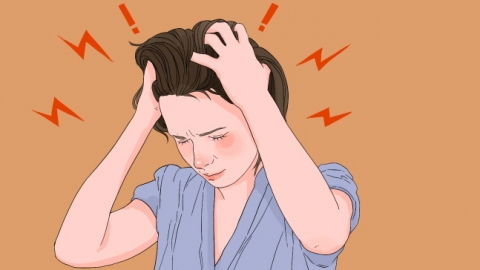How Does Hypertension Sneak Up on You
Hypertension may be caused by long-term high-salt diet, excessive mental stress, primary hypertension, kidney disease, or endocrine disorders. It can be improved through dietary adjustments, emotional regulation, medication, and addressing underlying causes. If blood pressure remains elevated or is accompanied by symptoms such as dizziness or headache, prompt medical attention is necessary.
1. Long-term high-salt diet: Excessive daily sodium intake leads to water and sodium retention in the body, increasing blood volume and raising blood pressure, commonly seen in individuals who prefer salty foods. It is recommended to reduce intake of table salt, pickled vegetables, processed meats, etc., limit daily salt consumption to within 5 grams, and increase consumption of fresh fruits and vegetables.
2. Excessive mental stress: Prolonged anxiety, tension, or staying up late can overactivate the sympathetic nervous system, causing blood vessel constriction and blood pressure fluctuations or elevation, possibly accompanied by insomnia and irritability. It is advised to regulate emotions through exercise, meditation, and ensure 7–8 hours of sleep per day, avoiding excessive fatigue.

3. Primary hypertension: Often related to genetic factors and aging, with decreased vascular elasticity or impaired regulatory function leading to persistently elevated blood pressure, possibly accompanied by dizziness and tinnitus. Under medical guidance, medications such as nifedipine sustained-release tablets, irbesartan dispersible tablets, and metoprolol succinate sustained-release tablets may be used to alleviate symptoms.
4. Kidney disease: Conditions such as glomerulonephritis impair the kidney's filtration function, reducing excretion of water and sodium, increasing blood volume, and elevating blood pressure, often accompanied by lower limb edema and proteinuria. Under a doctor’s supervision, medications such as valsartan capsules, amlodipine tablets, and hydrochlorothiazide tablets may be used to manage symptoms.
5. Endocrine disorders: For example, hyperthyroidism, where excess thyroid hormone accelerates metabolism, increases heart rate, and causes vasoconstriction, resulting in elevated blood pressure, along with palpitations and heat intolerance. Medications such as methimazole tablets, propranolol tablets, and propylthiouracil tablets may be prescribed to improve symptoms.
Daily care should include maintaining a low-salt, low-fat diet, engaging in regular physical activity, managing body weight, quitting smoking, limiting alcohol intake, and maintaining emotional stability. Regular blood pressure monitoring is essential for preserving cardiovascular health.







